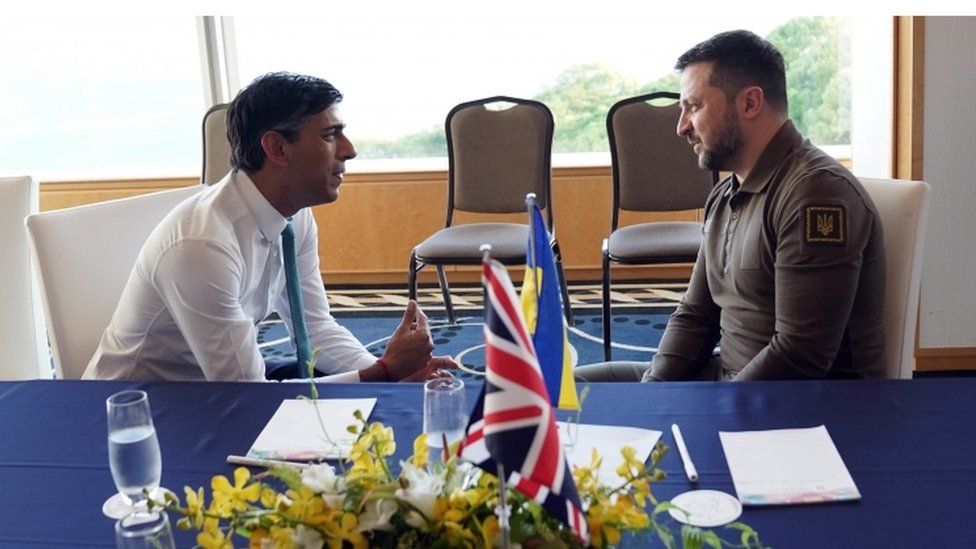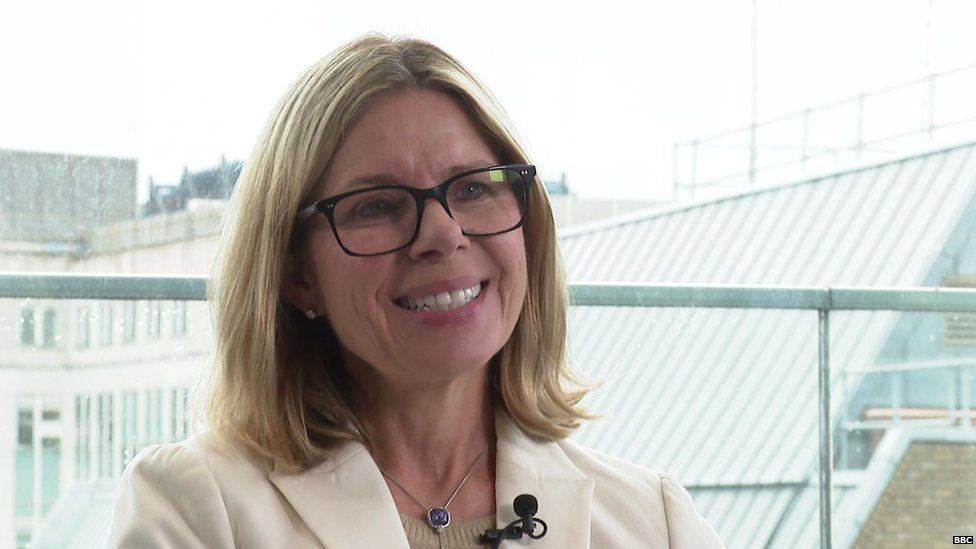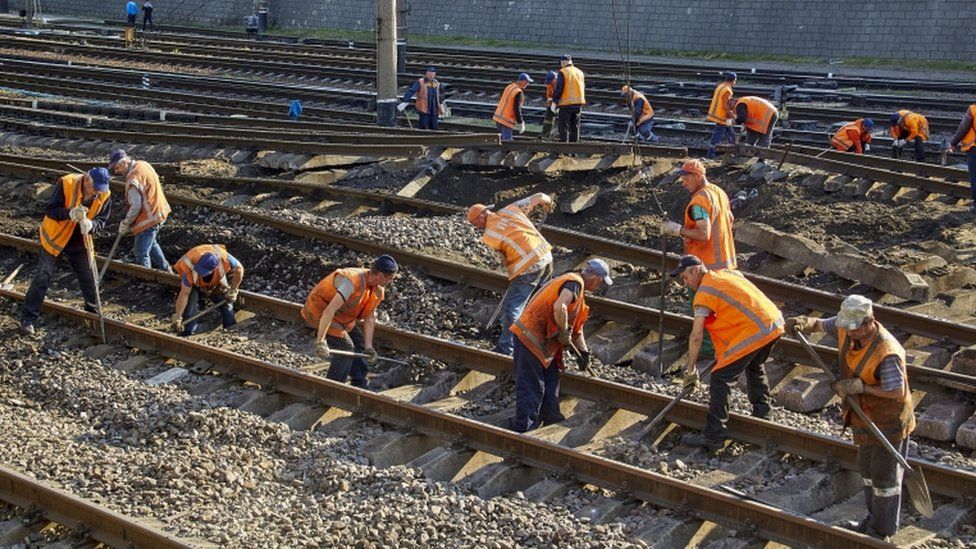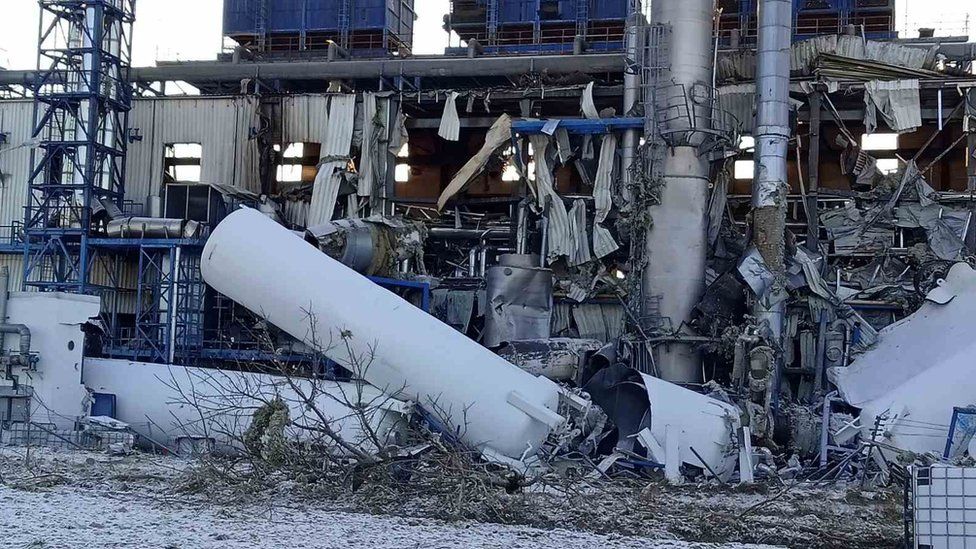

Ukraine’s economy will need external help for many years to come, a senior World Bank official has told the BBC.
The war-torn country “also has a lot of potential to turn a lot of its assets into economic opportunity and recovery”, according to Anna Bjerde.
The managing director for operations was talking before a major international conference in London on rebuilding Ukraine’s economy.
Last year the country’s economy shrank 29% to just over $140bn (£109bn).
The World Bank and other multilateral development bodies are playing a key role in the Ukraine Recovery Conference which is focusing on the role the private sector can play in rebuilding the country.
The total reconstruction bill was estimated at $411bn in March but continued fighting with Russia means that will now be higher.
The conference will start on Wednesday, hearing from the co-hosts, UK Prime Minister Rishi Sunak and Ukrainian President Volodymyr Zelensky.
Mr Sunak is set to announce $3bn in World Bank loan guarantees, and will tell the delegates: “As we’ve seen in Bakhmut and Mariupol, what Russia cannot take it will seek to destroy. They want to do the same to Ukraine’s economy.”
“President Zelensky’s government is determined to drive reforms to become more open, more transparent and ready for investment.”
When asked about the conference in a BBC interview, Mr Zelensky said: “On the larger scale we are speaking about the transformation of Ukraine. This is Ukraine not only with its energy and agriculture and industrial complexes, but with its reforms we can see. This is the digitalisation of our country.”
He also thanked the UK government and the people for their support of Ukraine since the start of a full-scale invasion by Russia in February 2022.

In the immediate term Ukraine needs $14bn from international donors to get through this year.
Ms Bjerde says this will go towards “essential social expenditures” such as pension payments, healthcare and salaries for doctors and teachers. It will also help fund urgent repairs that are needs to infrastructure such as roads and the power system that are crucial for the battered economy to function.
Despite the difficulties that many economies around the world are suffering as a result of the war in Ukraine Ms Bjerde is hopeful that the funding will be forthcoming. “I think there’s been a huge level of commitment shown to Ukraine, and I think that will continue. Ukraine is just too important.”

The billions of dollars poured in so far have “helped arrest what otherwise would have been even more devastating humanitarian impacts on the country”, she says, adding that Ukraine will also need to help itself.
That may prove difficult given that agriculture is a crucial source of income for Ukraine. It is a major global source of crops including wheat, sunflower and corn. Despite a deal to facilitate some exports, which is set to expire next month, output is expected to fall to around 45 million tonnes from 53 million in 2022.
Some of that is because damaged infrastructure makes it harder to get goods out of Ukraine.

Those challenges have been highlighted in a survey from the American Chamber of Commerce in Ukraine (AmCham Ukraine). It shows that 49% of companies have suffered damage to their buildings. It also found that 32% of companies have had staff killed and 27% staff injured during 15 months of fighting.
Nonetheless it also found 63% of companies intend to invest in new projects, plants or facilities and 74% want to create jobs for Ukrainians in existing projects.
AmCham Ukraine’s President Andy Hunder pointed to some of the issues the issues that will be addressed at the conference in London. He told the BBC that “the majority of businesses in Ukraine don’t plan to make claims for war damages until proper and clear compensation mechanisms are developed and eventually implemented”.

The two-day meeting of business leaders and politicians will also look at if a war insurance scheme can be put into place to encourage some of the private sector investment that the World Bank says is vital to rebuilding the economy.
In a separate survey it found firms have seen an average 53% drop in sales compared with pre-war 2021. It reported that larger companies have suffered more disruption that smaller firms.
Whilst big companies including Coca-Cola, Mondelez and Unilever have seen their buildings damaged some have already started spending money on rebuilding in Ukraine.
For that to continue Mr Hunder says “comprehensive war risk insurance for investors has a key role to play to secure investment in Ukraine’s rebuilding and recovery”.
Blackrock and JP Morgan are helping Ukraine’s government secure private sector investment for rebuilding. That will be key to providing the jobs and innovation that will drive Ukraine’s recovery according to the World Bank’s Ms Bjerde.
“Even if the war was to end today, there will be an adjustment period, the economy has changed a lot. Poverty in Ukraine has gone up, the dynamics and the demographics have changed. So there will need to be support for the time to come”. – bbc.com